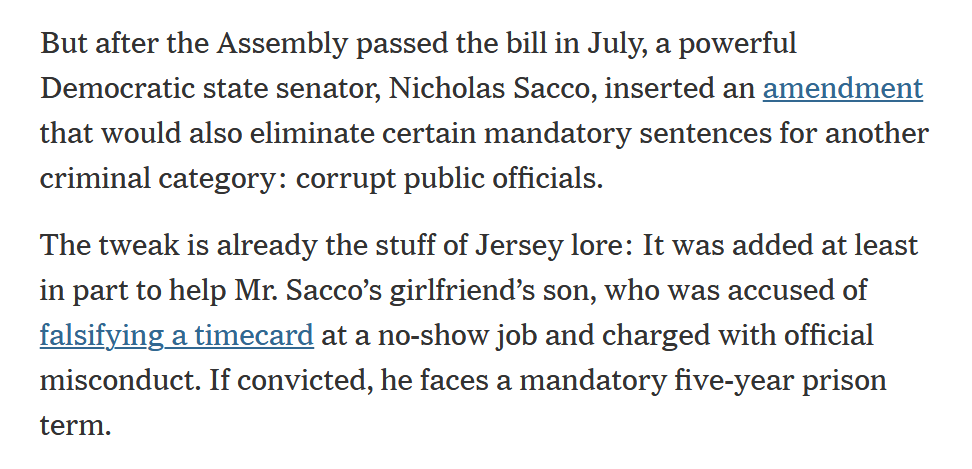
For all of the smart people (including some lawyers who follow me!) who keep saying that they have unanswered questions about problems with the election, please read this. washingtonpost.com/politics/us-at…
Whatever questions or concerns you have are simply not based in fact.
Whatever questions or concerns you have are simply not based in fact.

I understand that Fox News and various conservative websites keep insisting that there are real questions that remain unanswered.
But they are misleading you.
They're aren't real questions. Just misleading statements and flat out lies meant to create doubt in your mind.
But they are misleading you.
They're aren't real questions. Just misleading statements and flat out lies meant to create doubt in your mind.
Even the acting US Attorney in Atlanta was surprised that there was nothing to the allegations of voter fraud in that state.
I'm sure he watches the same news programs and reads the same websites you do.
But know he knows that all of those stories are false.
I'm sure he watches the same news programs and reads the same websites you do.
But know he knows that all of those stories are false.
And it's not just this single federal prosecutor.
Bill Barr publicly stated that there was no credible claim of voter fraud that could have affected the election.
And he did that *after* making it easier for DOJ to investigate those claims.
He *wanted* to find fraud and didn't
Bill Barr publicly stated that there was no credible claim of voter fraud that could have affected the election.
And he did that *after* making it easier for DOJ to investigate those claims.
He *wanted* to find fraud and didn't
Even the Trump campaign isn't willing to stand behind claims of fraud when it would actually matter--in court.
Giuliani told a federal judge in PA that the campaign wasn't alleging fraud.
More recently, the campaign voluntarily dismissed a lawsuit in GA before trial.
Giuliani told a federal judge in PA that the campaign wasn't alleging fraud.
More recently, the campaign voluntarily dismissed a lawsuit in GA before trial.
Lawyers will know why Giuliani may say one thing at a press conference and another thing in court:
If you lie to a judge, you can lose your license to practice law.
If you lie at a press conference, you are just another politician.
If you lie to a judge, you can lose your license to practice law.
If you lie at a press conference, you are just another politician.
Now, I've had a few lawyers point out to me that the big claims of election fraud--the ones being peddled by Sidney Powell--haven't been tested in court. Those lawsuits keep getting thrown out for jurisdictional problems like standing.
But this is a really bad argument.
But this is a really bad argument.
Those claims *would* get tested in court if the Trump campaign had brought them, rather than letting Powell and random other MAGA types bring them (think of the Texas lawsuit).
But the campaign isn't adding itself as a plaintiff in these cases. Why not?
But the campaign isn't adding itself as a plaintiff in these cases. Why not?
It's not because the campaign doesn't know about the claims or the lawsuits.
Sidney Powell has been in the Oval Office to meet with the President herself.
It's more likely that Trump's lawyers don't want to get sanctioned for frivolous claims.
Sidney Powell has been in the Oval Office to meet with the President herself.
It's more likely that Trump's lawyers don't want to get sanctioned for frivolous claims.
But there is an alternative, more nefarious explanation for why Trump's lawyers aren't bringing these fraud claims to court:
They don't want a definitive legal ruling that the election was, in fact, accurate and fair.
That ruling would expose their big lie.
They don't want a definitive legal ruling that the election was, in fact, accurate and fair.
That ruling would expose their big lie.
The Trump campaign want smart people to question the election and to assume that there must be a fire under all of the smoke.
But, if you think about it, there's no fire. If there were, Trump's lawyers would have done more than press conferences--they would have litigated.
But, if you think about it, there's no fire. If there were, Trump's lawyers would have done more than press conferences--they would have litigated.
If there were something to these fraud claims, Bill Barr would have filed indictments and given press statements about how his worst fears of voter fraud--fears he talked about *before* the election--were true.
The old and new federal prosecutors in GA would have done the same.
The old and new federal prosecutors in GA would have done the same.
I know that this country is full of people with different levels of legal knowledge and critical thinking skills.
But the comments that I've gotten from a handful of conservative lawyers over the past couple months about this election have been disheartening.
But the comments that I've gotten from a handful of conservative lawyers over the past couple months about this election have been disheartening.
Some of them may have stopped following me at this point because, since Trump's supporters stormed the Capitol last week, my tweets have gotten a lot more political.
But if they're still hanging around, I hope they'll think about this & reconsider whether they're being fooled.
But if they're still hanging around, I hope they'll think about this & reconsider whether they're being fooled.
• • •
Missing some Tweet in this thread? You can try to
force a refresh



